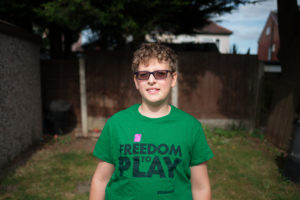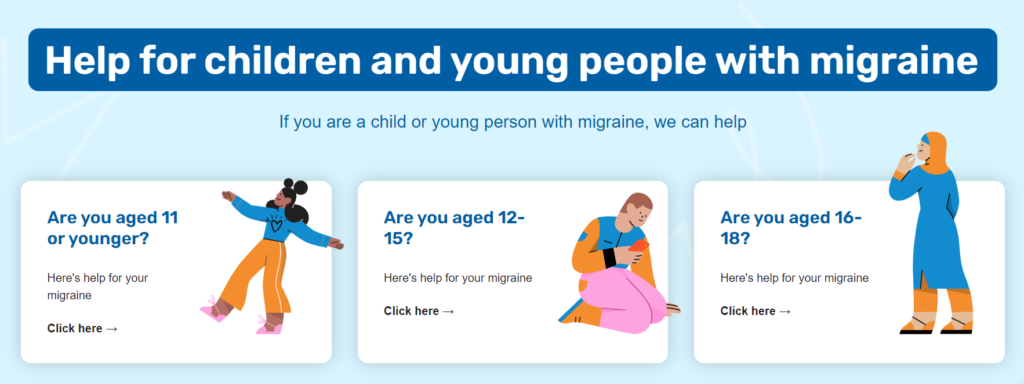Dismissed for too long: The impact of migraine on children and young people
Lack of care and support increasing suffering for children with migraine
Migraine is a painful and debilitating condition that affects one in ten children.

Despite being a painful and common condition, our new report has revealed that schools don’t have the information, resources and processes to help children in school with their migraine. Research for the report also showed that children often feel left out of their own healthcare and think that their care is poor.
The report, Dismissed for too long: The impact of migraine on children and young people, found two key issues:
Schools don’t have the knowledge or policies in place to help children with migraine
70% of parents/carers are concerned about the impact of migraine on their child’s education
76% of education professionals say that their school does not have the information, resources and processes to help children with migraine
17% of parents/carers who have spoken to their child’s school about their migraine were completely satisfied with the support
Children don’t feel that they are getting the healthcare they need
33% of children say the treatment of their migraine is poor
30% of children feel the treatment of their migraine is fair
72% of children with migraine say it makes them feel worried
Our recommendations on how problems can be addressed
We have set out in the report a range of proposals to be considered in order to address these issues, which includes:
- Integrated Care Systems (ICSs) in England and Health Boards in Scotland, Wales and Northern Ireland must include children and young people in reviews of local migraine needs, and ensure they have services to meet those needs.
- ICSs in England and Health Boards in Scotland, Wales and Northern Ireland must ensure there are strong links between migraine care and mental health services. Mental health must also be a component of the healthcare pathway for children with migraine.
- GPs and pharmacists should receive dedicated training on the management of migraine in children and young people. The British Paediatric Neurology Association, Royal College of GPs, the National Pharmacy Association and other stakeholders will be critical to delivering this and seeing it adopted.
- GPs should liaise with the child/young person’s school to ensure the school is able to provide appropriate support. Something as simple as a letter from the GP to the school will often help ensure their condition is understood and guidance is followed.
- There should be clear government guidance and information for staff on migraine, as part of general guidance on health and wellbeing. The aim of this is to strengthen awareness of migraine, ensure reasonable accommodation and ease the mental health burden children feel from not being understood. This could include work with the Department for Education, Public Health England and local authority school services to develop and diffuse guidance.
- There should be training modules on the management of migraine in children and young people for those working in schools and colleges.
New website section to help with migraine in children and young people
We have also launched a new section on our website for children and young people with migraine.

It has information for children about migraine, how they can manage it and get help, and how they can talk to other people about their migraine.
It also has information for the parents and siblings of children with migraine, as well as those working in schools and primary care.
You can visit the new section here.
We need your help
However, proposing solutions is one step, having those solutions implemented is a much bigger step.
This is where we need your support.
We are raising these issues in the media, and lobbying government and working with the healthcare and education communities to have these recommendations implemented, but you can help us ensure that these messages reach as many people as possible by raising awareness of them online – and the help that is available.
How you can support our #BetterMigraineCare campaign
Help us raise awareness of the issues for children with migraine in the UK and the help that is available to them.
Let people know about our help for children with migraine
Let any children you know that are living with migraine know about our new website section, as well as their parents. Please also share it with anyone you know who is working in a school or in healthcare
Join in on social media
Share the report on social media using the hashtags #BetterMigraineCare. If you had migraine as a child, please share your experiences of being a child living with migraine in education and healthcare.


